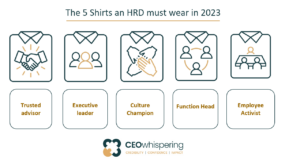Stories of CEO’s who want to see their employees return to offices 5 days a week are common – bosses want the reassurance that their people are doing the jobs they are being paid for and that they are on hand when needed. However many employees have appreciated the flexibility of working from home, as well as the savings of time and money through not commuting; moreover they can shut themselves off from unnecessary interruptions- especially from the boss – which wasn’t possible when they were available just a few feet away, 5 days a week.
Recent research of 20,000 staff across 11 countries by Microsoft highlighted a gulf in perceptions of outputs from home working – 7% of employees believe they are as efficient, or even more efficient working from home, whilst 80% of managers disagree, believing their employees are less efficient.
Much press coverage celebrates the benefits of home working, but fails to address the reality that different types of work may best be performed in separate environments, and different types of individual may be more suited to office and home environments.
Why are these differences not explored more in the press? Well, it may well be no coincidence that one of the jobs best suited to home working is that of a journalist.
Recent research by the LSE and Squadify finds that people performing task and intellect driven work – such as a journalist researching and writing articles ahead of a copy deadline– are likely to be more productive working remotely or at home. However when the work requires collaboration or the team are looking to make deeper connections then physical separation may well become a barrier to productivity.
While the flexibility of home working brings personal benefits to many employees, their isolation and separation can lead to ‘fear of missing out’ or worse. In particular junior employees still learning the discipline of work will benefit from the regular presence of experienced senior employees handling clients and difficult situations -development experience which cannot be gained through Zoom or Teams.
As a result many employers would be well advised to pursue a ‘best of both’ strategy and establish ways of working which facilitate productivity whilst improving employees’ experience:
- Ensure office time is used for collaborative activities, taking advantage of the shared presence which previously was taken for granted. And if you want them to fight their way through commuter traffic for an early start, offer coffee and breakfast on arrival.
- Trust your employees to get their work done from home, and use the many tools available to help them connect and be productive – email and Teams can be supplemented by tools such as Sharepoint for more longer lasting impact and Slack for quick and simple contacts.
- Take advantage of the return of corporate entertainment – bring together employees and your commercial partners to rebuild social connections and show them your appreciation.
And as winter temperatures start to drop, keep the office heating up. Despite the biases of the Fourth Estate, the arguments for coming into the office more frequently are getting more compelling each week.
This article was first published on the Quarmans website in November 2022






